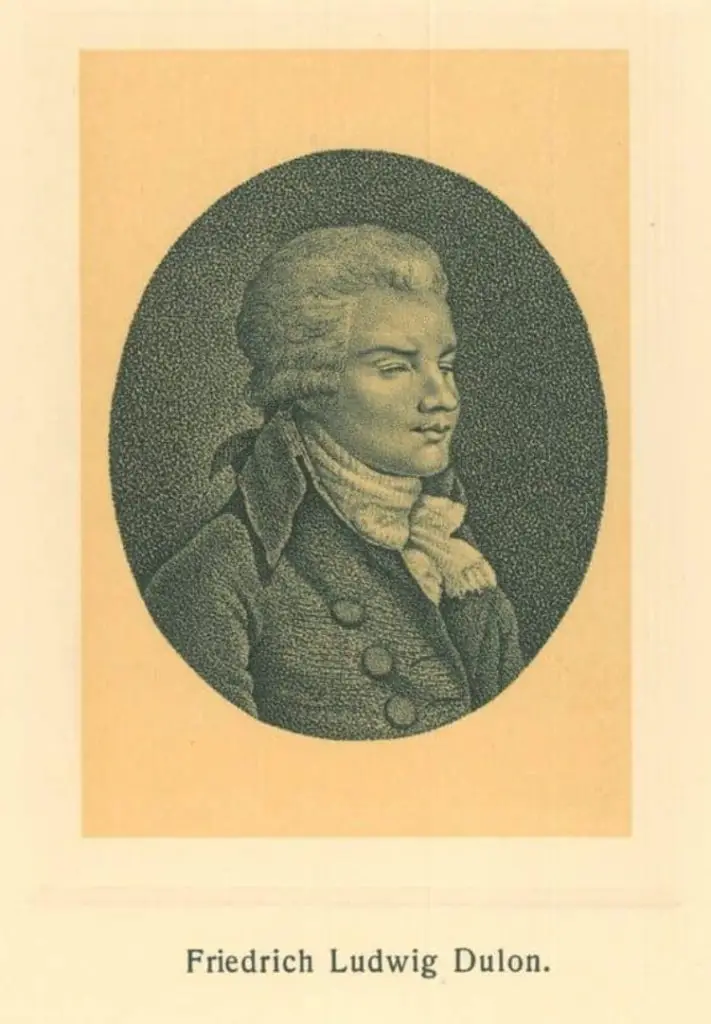
Friedrich Dülon (1768 – 1826)
Friedric Dülon is remembered as a composer and one of the first virtuosos of the Western concert flute, pioneering new techniques and expanding the expressive capabilities of the instrument. His flute works are admired not only for their technical prowess but also for their emotive depth, influencing generations of flutists and enriching the classical music tradition.
Early Life and Challenges
Friedrich Ludwig Dülon, born on August 14, 1768, in Oranienburg, Germany, faced significant challenges from infancy. At just six weeks old, he became blind due to an eye infection caused by medical malpractice. Despite this adversity, Dülon’s passion for music was undeterred, fueled by his father, a music-loving tax official. His early music education was further enriched by lessons with Johann Karl Anderson, who taught him piano and figured bass, and the blind flutist Joseph Winter, who introduced him to the flute.
Musical Prodigy and Early Achievements
Dülon’s musical talent manifested early; by the age of nine, he had already composed a minuet and could flawlessly perform Quantz’s flute concerto from memory, a piece he learned by listening to his father. His public debut occurred in Berlin on October 9, 1781, marking the start of his illustrious career as a touring virtuoso.
European Tours and Notable Interactions
Throughout the 1780s, Dülon toured Europe extensively with his father and sister, gaining fame and recognition. A significant moment in his career was his visit to Carl Philipp Emanuel Bach in Hamburg in 1783, where he impressed Bach with his performance of the A-minor sonata. During this period, he also developed relationships with notable musicians such as Karl Benda and took on students like Friedrich Hölderlin in Tübingen in 1789.
Encounters with Renowned Composers
Dülon’s talent was recognized by many contemporaries, including Wolfgang Amadeus Mozart, whom he met during the coronation festivities for Emperor Leopold II in Frankfurt in 1790. He later performed a flute concerto by Giovanni Mane Giornovichi in Vienna, further cementing his reputation.
Later Years and Contributions
After spending about five years as a royal musician in St. Petersburg from 1792, Dülon returned to Germany with a pension from Emperor Paul I of Russia. He settled in Marienburg from 1800, where he wrote his autobiography using a special alphabet developed for him by a college professor in Dresden. He moved to Würzburg in 1823, where he lived until his death on July 7, 1826.
Compositions and Legacy
Friedrich Ludwig Dülon’s contributions to flute music are substantial. His compositions, which include a flute concerto, 16 duos, and a set of 11 caprices for solo flute, are celebrated for their intricate melodies and technical demands. These works continue to be studied and performed, underscoring his lasting impact on the classical flute repertoire.
Selected Works:
- Duets Opus 6 No. 2 in D major for Flute and Viola
- Duets Opus 6 No. 2 in G major for Flute and Viola
- Duets Opus 6 No. 3 in D minor for Flute and Viola
- Duo Opus 5 No. 1 for Two Flutes
- Duo Opus 5 No. 2 for Two Flutes
- Duo Opus 5 No. 3 for Two Flutes
- Three Duos Opus 6 for Flute and Viola
This event has passed.
Birthday of Friedrich Dülon

